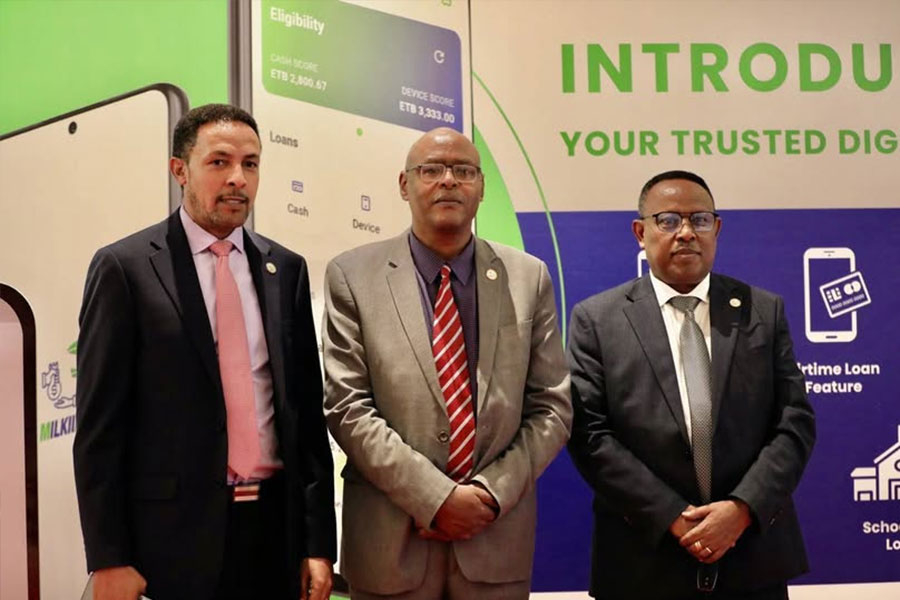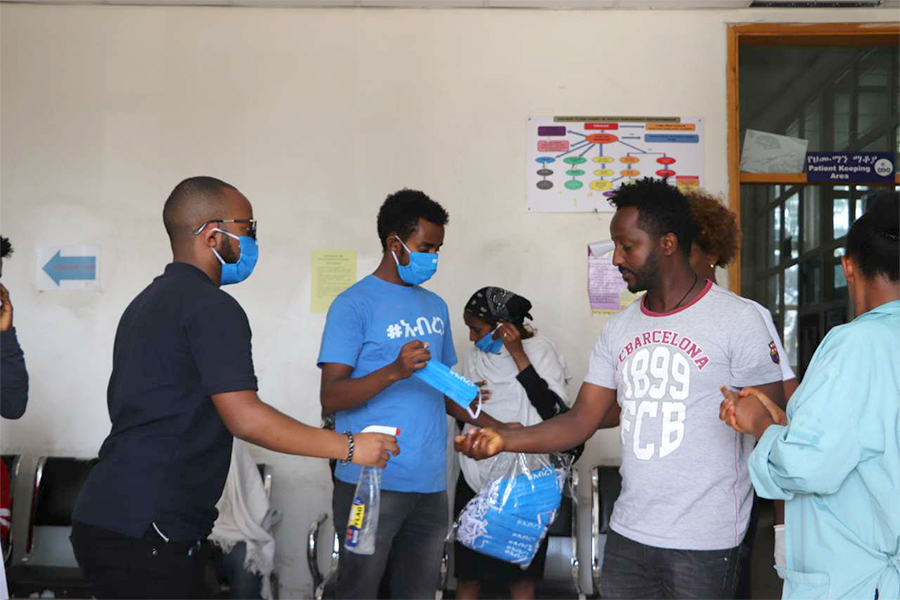
Fortune News | May 23,2020
Jun 14 , 2020
By SEBLE WONDEMAGEGN ( FORTUNE STAFF WRITER )
A local tech company has developed a web-based, homeschool tutoring application that will assist students in continuing their studies during the Novel Coronavirus (COVID-19) pandemic, which has led to the closure of schools across the country.
Sevents Plc developed the Sevents Home Tutor App for public and private school heads, teachers, students and parents. The application, which took four months to finalise, is mainly designed for students in grades five through 12.
Launched three weeks ago, the application is designed in English, and it can be used offline after downloading the course materials and exercises. Developed by three experts, the system enables users to share course materials, upload videos, audio and PDF documents, complete exercises and test questions, submit individual assignments and use chat rooms between students and teachers.
The company began the process of developing the application before the spread of the virus. Still, it was finalised quickly following the spread of COVID-19, according to Tsena Negash, founder and general manager at Sevents Plc, a two-year-old company.
“It’s social media that teachers, students, parents and school staff can interact with,” said Tsena.
Public schools can use the system for free, but private schools who want to be a part of the portal are required to pay a fee for two, three, six months or one year depending on their needs. The application can be used as an optional reference for regular times and during lockdowns of schools. It can also be used for private tutors.
“There wasn’t a school community focused on social media where the school community could interact with each other,” said Tsena. "We're in the process of adding five more languages: Tigrigna, Amharic, Afan Oromo, Somalia and Swahili."
Schools first create their account and subscribe to the portal, then the administrator of the portal assigns teachers and department heads to a specific grade and subject. Sevents charges private schools an average of 50 Br a student as a subscription fee. The system also enables teachers to build their contact information, register students, and upload lessons, exercises and worksheets in the sections provided by the portal.
Before launching the portal, the company conducted a survey and tested the application for its accessibility and uses within schools, according to Tsena.
An educational expert that worked in the sector for four decades appreciates the use of a variety of technologies to keep teaching on track during the pandemic. But he cautions there should be a regulatory mechanism to make sure the materials on such applications are designed in line with the national curriculum.
“These companies should be encouraged," said Tirusew Tefera, a lecturer at Addis Abeba University’s College of Educational & Behavioral Studies. "However, the content should be relevant to the curriculum and has to be regulated."
Since the beginning of the pandemic, several companies have launched digital learning platforms. Cilondis Plc, a local tech firm, has developed the Study Africa Portal for elementary, secondary and preparatory school students to receive content updates from the Addis Abeba Education Bureau via textbook, radio and television. Winner System, a subsidiary of Winner Industrial Engineering, has also developed an online learning management system to help higher education students and teachers continue classes during the pandemic.
Andualem Admassie (PhD), director-general at the Higher Education Relevance & Quality Agency, says that so far they have not registered or given permission to any company to provide online learning management systems.
"No system is transparent and accountable unless it is monitored and evaluated by the government or has secured a quality and standard license," Andualem told Fortune.
The initiative of these companies can be an example of how one purpose can be diverted into another, according to Abebe Mulu, a lecturer at the University of Gonder.
“If they're using a cloud server," he said, "there won't be many limitations, and nowadays cloud servers are recommended for current technology."
Abebe advises that such applications and platforms should be simple to students and must be multilingual.
PUBLISHED ON
Jun 14,2020 [ VOL
21 , NO
1051]

Fortune News | May 23,2020

Radar | Jun 01,2025

Fortune News | Dec 05,2018

Fortune News | Feb 23,2019

Covid-19 | Mar 28,2020

Radar | Nov 24,2024

Radar | Aug 20,2022

Commentaries | Mar 28,2020

Fortune News | Dec 05,2018

Radar | Dec 29,2018

Dec 22 , 2024 . By TIZITA SHEWAFERAW
Charged with transforming colossal state-owned enterprises into modern and competitiv...

Aug 18 , 2024 . By AKSAH ITALO
Although predictable Yonas Zerihun's job in the ride-hailing service is not immune to...

Jul 28 , 2024 . By TIZITA SHEWAFERAW
Unhabitual, perhaps too many, Samuel Gebreyohannes, 38, used to occasionally enjoy a couple of beers at breakfast. However, he recently swit...

Jul 13 , 2024 . By AKSAH ITALO
Investors who rely on tractors, trucks, and field vehicles for commuting, transporting commodities, and f...

Oct 18 , 2025
The political establishment, notably the ruling party and its top brass, has become p...

Oct 11 , 2025
Ladislas Farago, a roving Associated Press (AP) correspondent, arrived in Ethiopia in...

Oct 4 , 2025
Eyob Tekalegn (PhD) had been in the Governor's chair for only weeks when, on Septembe...

Sep 27 , 2025
Four years into an experiment with “shock therapy” in education, the national moo...